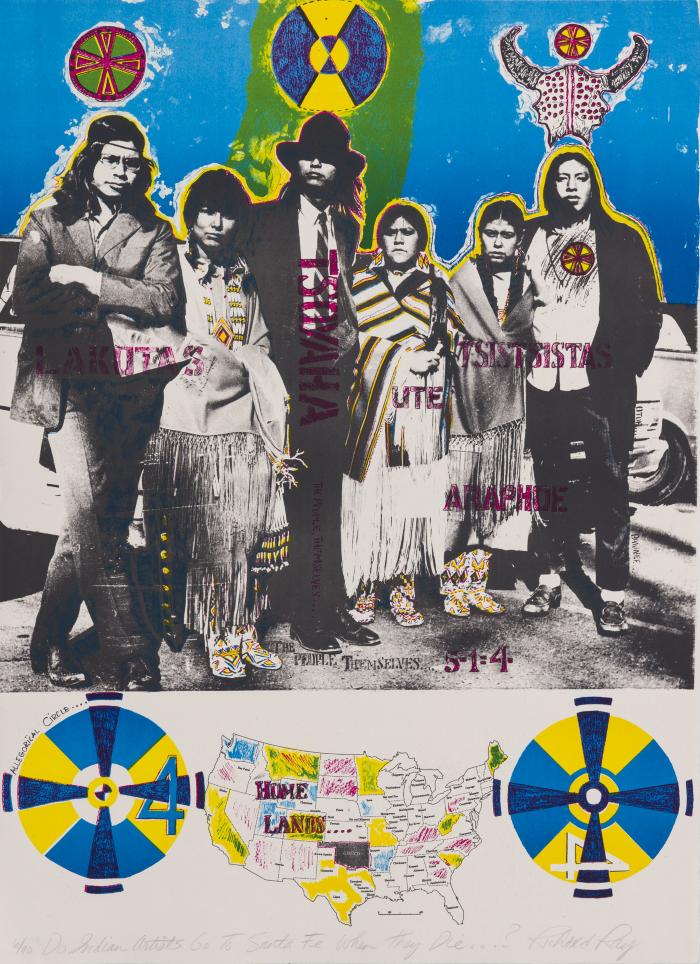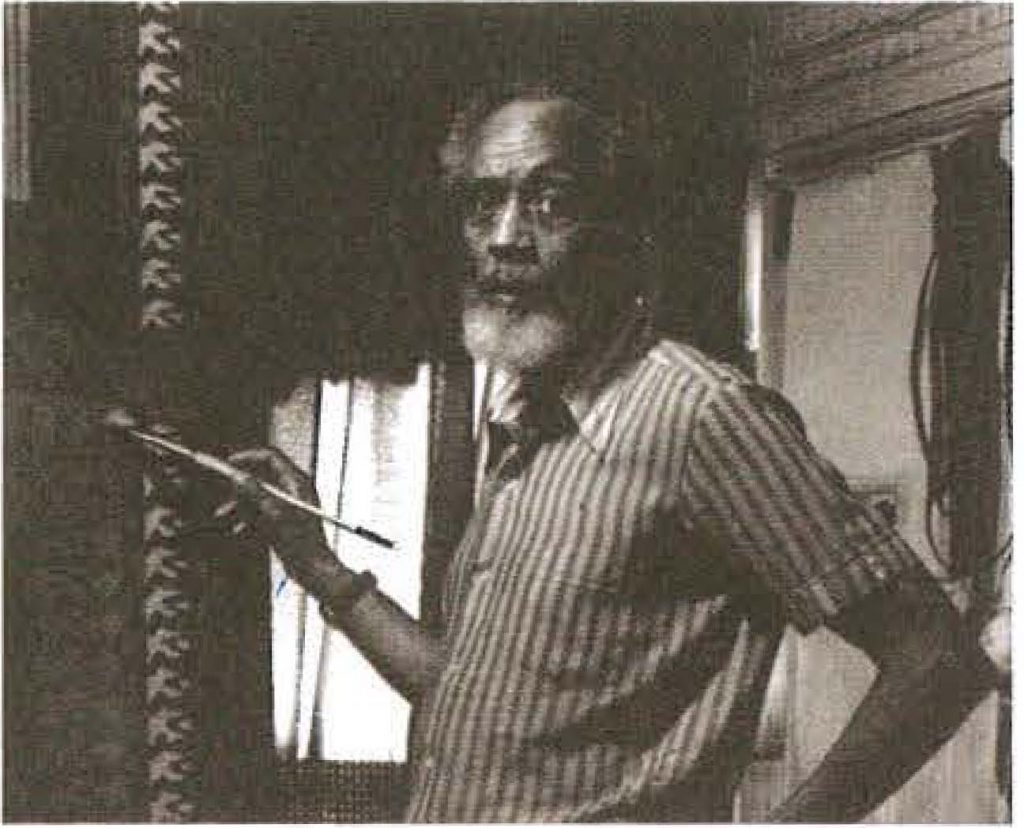
Do Indians Go to Santa Fe When They Die?
Richard Ray Whitman
- 1988
- Offset Lithograph
- Image/sheet: 30 x 22"
- 90 prints in this edition
About the Print
From the Artist
My work is a layering of cultural, political, and aesthetic ideas which are always changing and evolving, just as my own identity and the identity/identities of Indian people have always evolved and changed. As an artist, I am always consciously repositioning my approach to my work to encompass broader concepts in contemporary art and to experiment with new technologies, materials, and art forms.
—From Brandywine Workshop and Archives records
About the Artist
Richard Ray Whitman is a Yuchi-Muscogee/Creek visual artist, poet, actor, and activist born in Claremore, OK. He attended the Institute of American Indian Arts, Santa Fe, NM; California Institute of the Arts, Santa Clarita; and Oklahoma School of Photography, Oklahoma City.
Whitman is known for his black-and-white photographs portraying contemporary Native realities, especially his Street Chiefs Series, which features images of homeless Native men, primarily in downtown Oklahoma City. His photographic portraits are compassionate and empathetic to the lives of homeless Native individuals and place them in the larger context of Indian Removal, the forced displacement of Native tribes from their ancestral homelands to a designated, far-removed Indian Territory.
Whitman has exhibited his work at museums and galleries worldwide, including exhibitions at the Smithsonian’s National Museum of the American Indian, Washington, DC, and the Venice Biennale, Italy. His artwork has been published in magazines including Native Peoples and American Indian Art and featured in books including Aperture’s Strong Hearts: Native American Visions and Voices and the Oxford University Press college textbook Native North American Art.
He has worked as an artist-in-residence with the Oklahoma Arts Council, teaching art in public and alternative schools. He taught art through the National Indian Youth Council and the youth-at-risk program at the Native American Center (now First Americans Museums) in Oklahoma City. He has also worked with youthful offenders, teaching art as rehabilitative therapy as a visiting artist in several state corrections institutions.
Whitman is an accomplished actor and filmmaker, appearing in films including Red Reflections, War Party, Lakota Woman, and The Only Good Indian, among others.
—From Brandywine Workshop and Archives records
Curriculum Connections
Suggested Topics for Social Studies and U.S. History
Social Studies and U.s. History
This print reflects the artist‘s desire to challenge stereotypes about Native American people — including the exploitative and caricaturing use of their names and images for sports and other commercial purposes — while the economic, educational, and cultural oppression of Native people continues. The Black Lives Matter movement, which began in 2013 and gained increased urgency in 2020, has focused renewed attention on stereotypes, marginalization, and oppression of people based on race, ethnicity, and religion. The awareness raised by Black Lives Matter has spurred many businesses to reexamine their branding and media strategies.
Questions to Consider
- What examples can you think of that further explores these ideas in real-time?
- Have you ever met or had a conversation with a Native American?
- The end of the Civil War started a period of aggressive westward expansion of the United States, war waged on Native American tribes by the U.S. army, and seizing or destroying natural resources. What impact did the mass slaughter of buffaloes by whites have on the survival and displacement of Native Americans?
Related Media
- “Now that the Buffalo’s Gone” sung by Buffy Sainte-Marie
